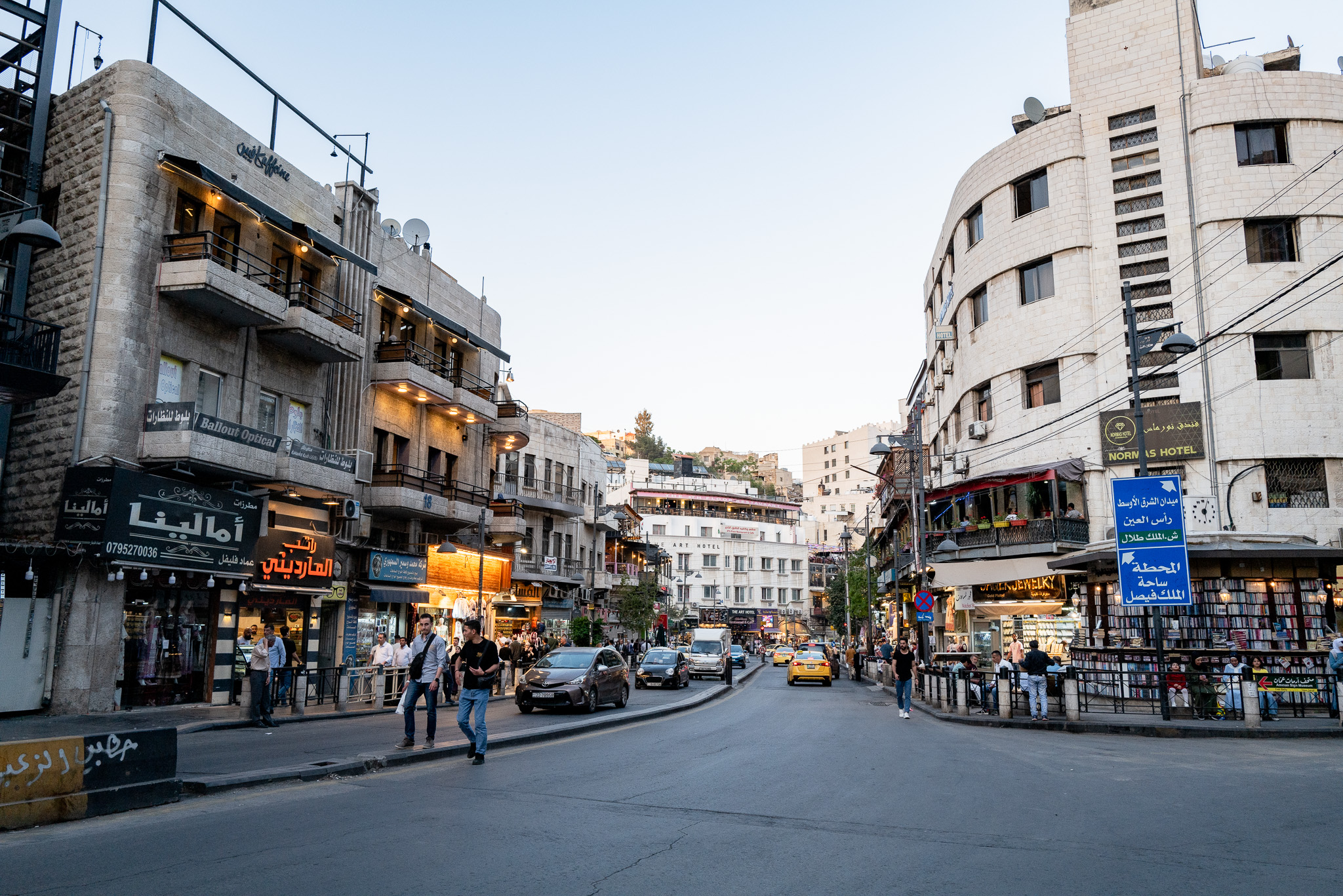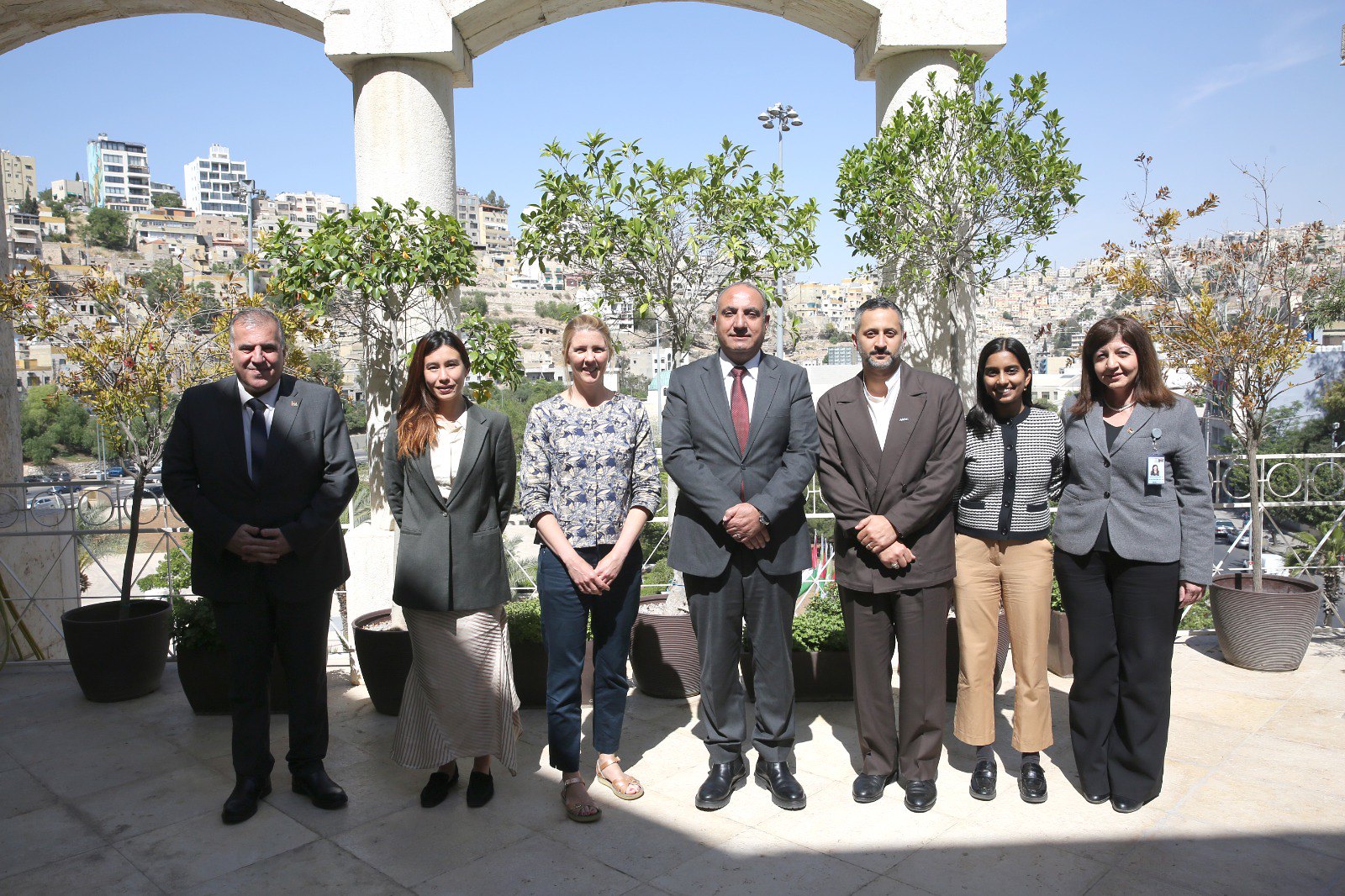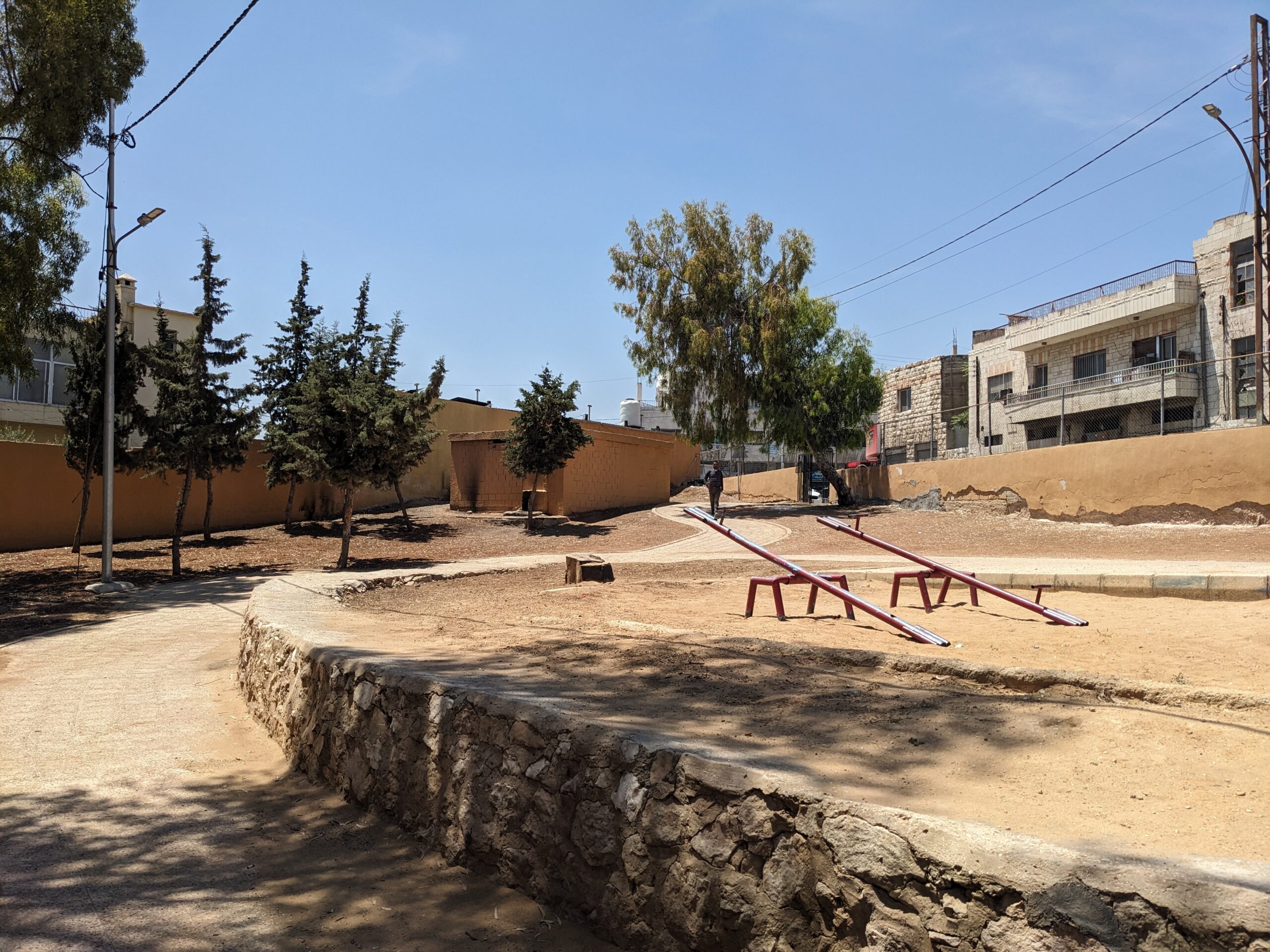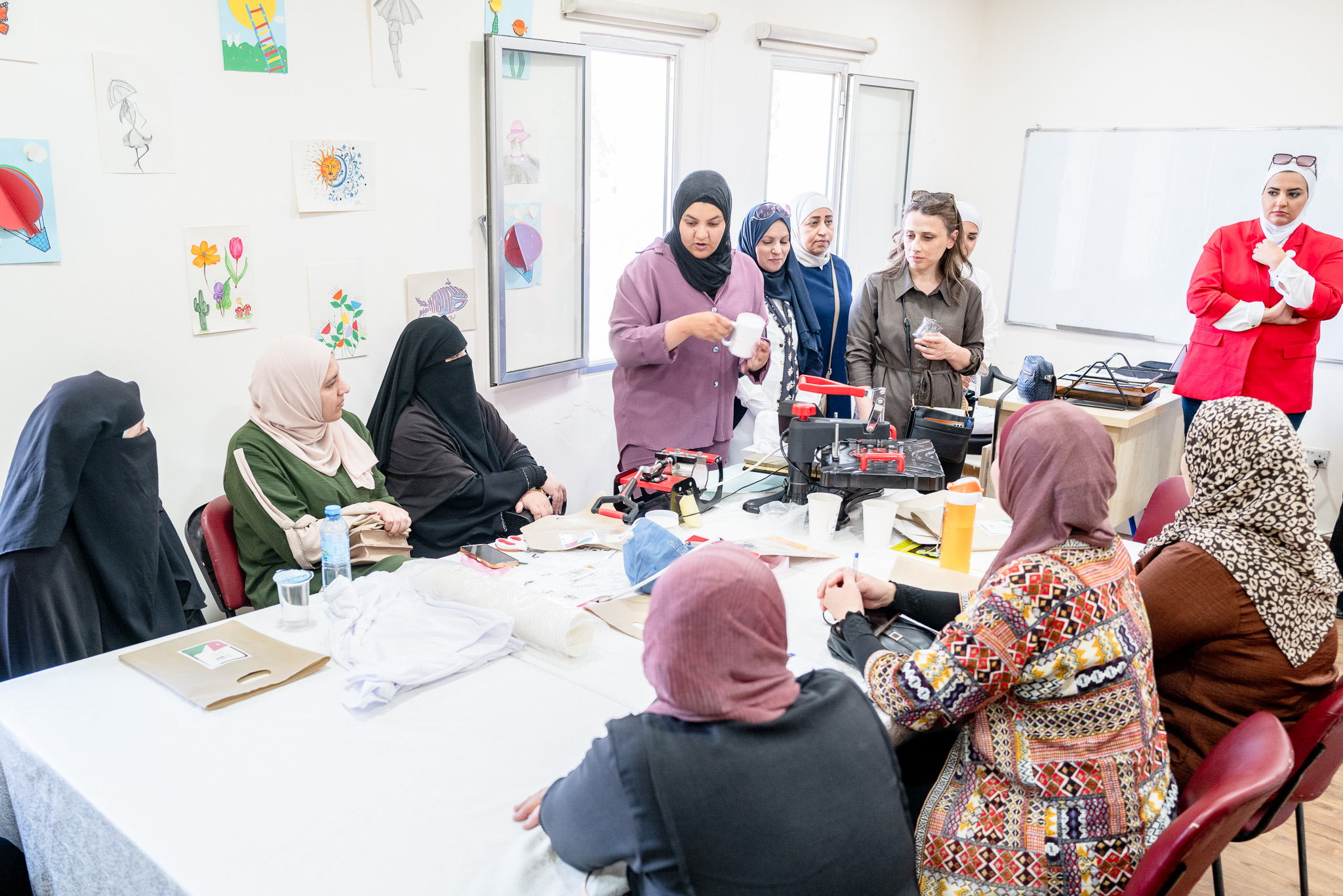City Leadership amidst International Uncertainty: The Case of Amman

Credit: Samer Saliba
No Longer Business As Usual
In January 2025, the United States government announced a freeze on all foreign assistance. What began as a 90-day pause on aid ended up fundamentally altering the international funding landscape. More than 80 percent of USAID programs were dismantled, and governments around the world followed suit with additional aid cuts that left the development community reeling.
The impact of these cuts has been especially acute for migrants and refugees, as UN agencies and their humanitarian partners have been forced to eliminate staff roles and terminate lifesaving programming for millions of individuals affected by displacement. With at least 1.5 percent of the global population, or 117.3 million people, forcibly displaced at the end of 20231, the need remains high and is likely to grow.
The international donor community cannot continue with business as usual. As funding for international actors declines, philanthropies, foundations, and development banks must consider local partners as the best placed actors to advance work with migrants, refugees and welcoming communities. City governments should be at the top of the list.
The Case of Amman
Amman, Jordan, like many global cities, has a long history of supporting vulnerable populations, a role that has become even more critical with recent international funding reductions. The city, home to nearly 4.2 million people makes up approximately 42% of Jordan’s total population. Since 2012, Amman has hosted over 400,000 Syrian refugees, in addition to hundreds of thousands of refugees from Palestine, Yemen, Iraq, and Sudan. These individuals have become an integral part of Jordan’s social and economic fabric. Looking ahead, the MMC-C40 Future Landscapes Report projects that Amman will receive an estimated 554,000 climate migrants by 2050.
To highlight the context on the ground, and to progress a joint vision for future collaboration, Amman’s mayor, Dr. Yousef Alshawarbeh, a founding Leadership Board member of the Mayors Migration Council (MMC), welcomed the MMC team to Amman in early May. Mayor Alshawarbeh outlined his priorities in these times of international upheaval and funding cuts, including his desire for Amman to be an exemplar in the region when it comes to welcoming migrants and refugees. Other priorities include his commitment to engaging with mayors around the world, especially in the Middle East, and exchange learnings on inclusive strategic planning at a city level as well as project by project.

Under Mayor Alshawarbeh’s leadership the Greater Amman Municipality (GAM) is demonstrating how cities are best positioned to use limited resources for long-term impact for migrants and refugees. This is because:
- Most migrants and refugees move to and live in cities, and city halls are closest to their residents’ needs. In 2005, GAM began a collaboration with UNICEF to establish “Youth Councils,” which provide 300 Jordanian and refugee high-schoolers the opportunity to input into city planning processes every year. City agencies and services are an integral part of the project: youth councillors are recruited from public schools; councillors have regular meetings with GAM, and some graduates of the program have even gone on to work for city government. With such direct input from young citizens, including refugees and migrants, GAM has a permanent channel of communication to prioritize their needs in their future planning and service delivery.
- Cities are experts at delivering core and cross-cutting services under resource and political constraints. Amman is a grantee city of the Global Cities Fund for Migrants and Refugees, the MMC’s flagship mechanism for channeling technical and financial support directly to cities. With GCF funding, GAM is establishing the city’s first Children’s Climate Academy and Park in the Al-Hussein refugee camp to teach Amman’s youngest generation about environmental stewardship. The Academy and park will provide a safe and welcoming space for refugee and Jordanian children to play, interact, and learn. GAM collaborated closely with migrants and refugees to design the park and Academy, hosting several community engagement workshops to gather ideas and feedback.
- City governments don’t go anywhere. International development money for migrants and refugees can often overlook the city government, which can be issue if it is withdrawn and resources that citizens have come to rely on disappear. GAM is avoiding this situation with the Climate Academy, by doubling the GCF’s original investment with its own revenues, ensuring the academy’s long-term continuity and institutionalization.

- City leaders are best placed to serve ALL citizens. Mayors are less concerned with differentiating between newcomers and long-time residents. They focus on delivering for all individuals within their city boundaries on any given day. Amman’s Training and Skills Development Center in Queen Rania Al Abdullah Park helps marginalized women, including refugees, pursue income-generating activities. The Center delivers skills development workshops around pottery, resin-based products, sewing, and cookery, and provides spaces where women can produce and sell products to earn a living.

Similarly, the Urban Agriculture Training Center at Tafawoq Park opened in 2024 with gardens, seed and propagation rooms, and a classroom. The Center provides training in urban agriculture for local women, enabling them to use their new skills in their homes and neighborhoods, whether they are newcomers to the city or not. Both of these centers started with outside funding and are now solely operated by GAM and open to the general public, showing the promise of directly investing in cities.
Cities around the world face the same uncertainties as Amman, and yet are taking the lead to deliver critical services for their new and long-standing residents alike. As GAM continues to invest in its migrant and refugee communities, it seeks to build capacity within city hall and with local partners to ensure that all of its residents can thrive. We call on like-minded partners to join us in scaling this effort to make a lasting impact. Contact us at fund@mayorsmigrationcouncil.org.
